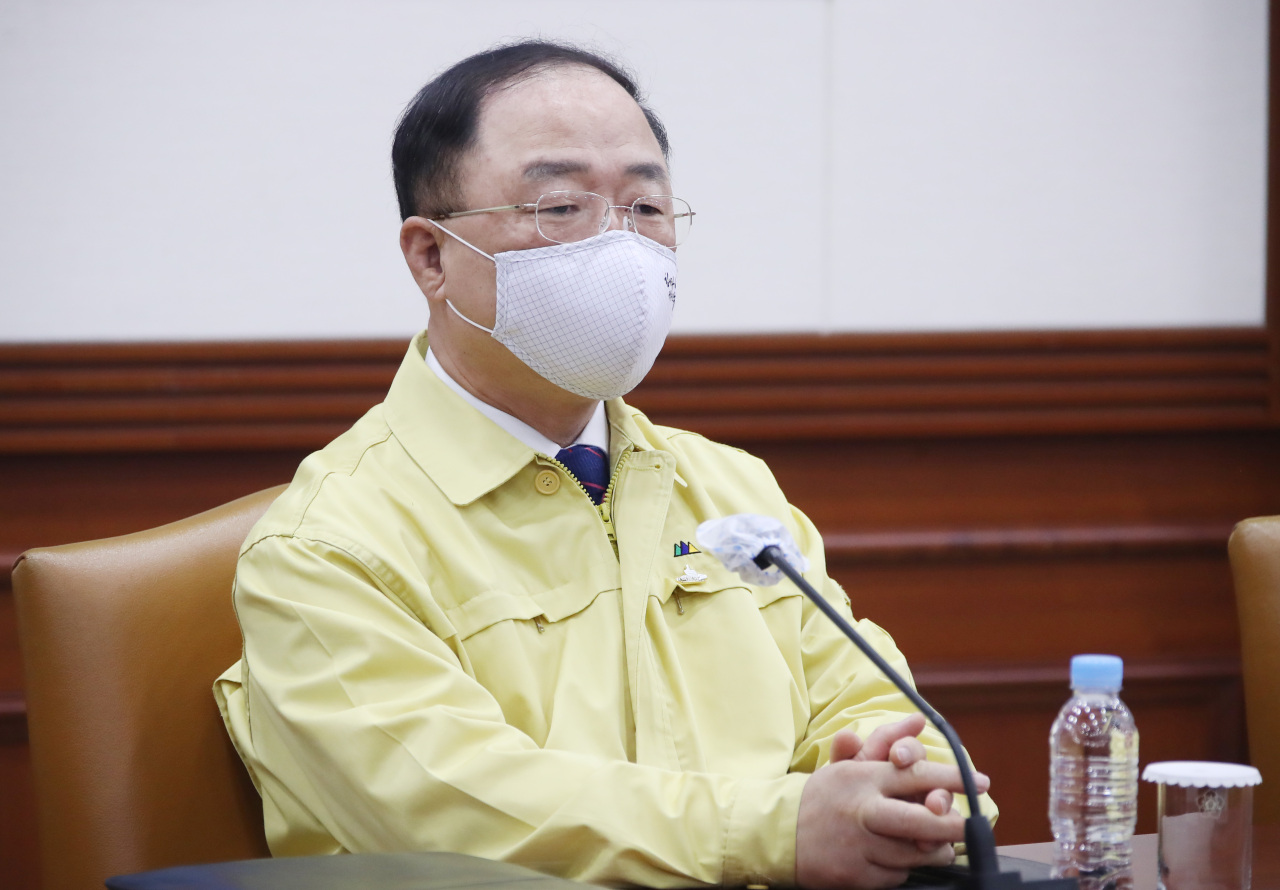Ministries told to cut discretionary spending by 10% for 2021 budget
By Jung Min-kyungPublished : May 6, 2020 - 17:31

The Ministry of Economy and Finance on Wednesday asked all government ministries to cut discretionary spending by 10 percent in their requests for next year’s budget.
The government aims to use the money saved to invest in new projects that could reinvigorate the economy amid signs of an economic downturn brought on by the latest coronavirus pandemic, according to the Finance Ministry.
A task force formed of vice ministers and ranking officials will be launched to map out a strategic budget plan, it added.
In its guidelines for 2021 budget planning distributed to all ministries, the ministry requested them to draw up and submit budget requests by May 31. The ministry not only plans to slash discretionary spending, but also pursue a reform of mandatory spending.
The federal government allocates its budget for mandatory spending and discretionary spending.
Mandatory spending is enacted by law and can continue without a specific appropriations bill. It includes national pensions and medical insurances.
Discretionary spending, meanwhile, requires support of the National Assembly to appropriate the funds and is usually earmarked for public works projects and welfare outlays. Unlike mandatory spending, they are not subject to sudden cutbacks or alteration of use.
The guideline included a thorough examination of spending subsidies and contributions, such as government-funded welfare projects.
The Finance Ministry said it would look into 600 state-funded projects that have received government funding for more than three years to identify those that no longer need state support.
This emphasis may signal another increase in overall government expenditure, which ballooned by more than 9 percent both this year and last.
The National Assembly on April 30, approved a second extra budget of 12.2 trillion won ($10 billion) to fund its emergency cash handout scheme for all households to help them cope with financial impact of the coronavirus pandemic. It follows the first extra budget of 11.7 trillion won that was created in March, for the similar purpose of combating economic risks from the virus.
On top of it, President Moon Jae-in recently instructed government officials to prepare a third extra budget, which experts expect to reach around 30 trillion won.
South Korea’s annual budget is at 512.3 trillion won this year, up 9.1 percent from 2019, without taking the extra budgets into account.
By Jung Min-kyung (mkjung@heraldcorp.com)








![[KH Explains] Hyundai's full hybrid edge to pay off amid slow transition to pure EVs](http://res.heraldm.com/phpwas/restmb_idxmake.php?idx=644&simg=/content/image/2024/04/18/20240418050645_0.jpg&u=20240419100350)







![[From the Scene] Monks, Buddhists hail return of remains of Buddhas](http://res.heraldm.com/phpwas/restmb_idxmake.php?idx=652&simg=/content/image/2024/04/19/20240419050617_0.jpg&u=20240419175937)

![[KH Explains] Hyundai's full hybrid edge to pay off amid slow transition to pure EVs](http://res.heraldm.com/phpwas/restmb_idxmake.php?idx=652&simg=/content/image/2024/04/18/20240418050645_0.jpg&u=20240419100350)

![[Today’s K-pop] Illit drops debut single remix](http://res.heraldm.com/phpwas/restmb_idxmake.php?idx=642&simg=/content/image/2024/04/19/20240419050612_0.jpg&u=)